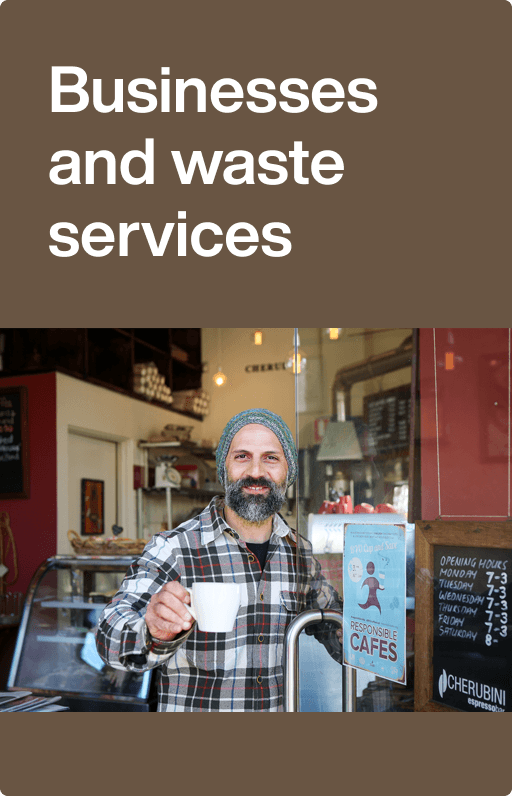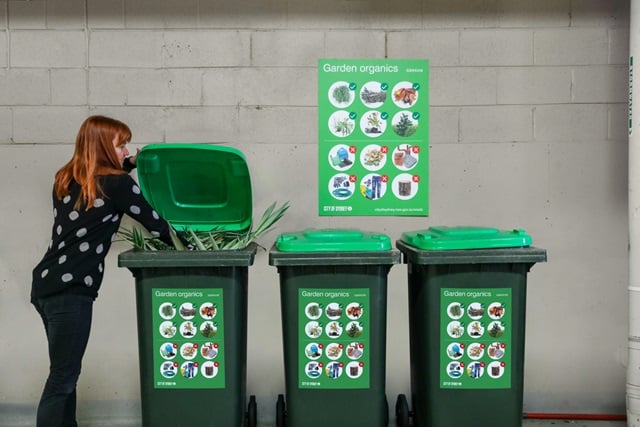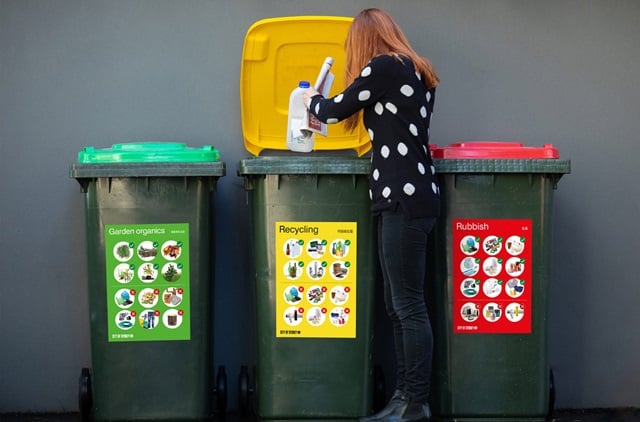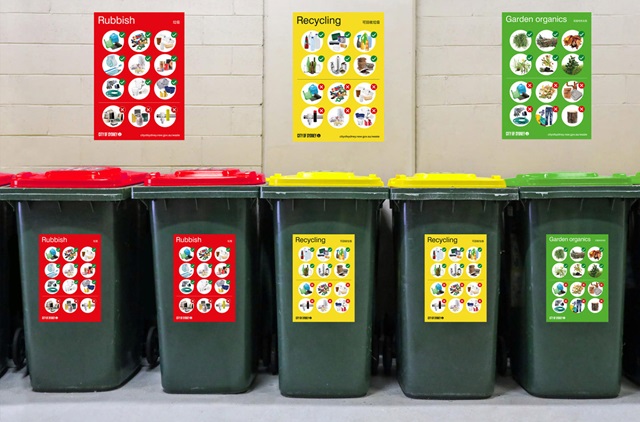Book a free pick-up for bulky items
We’ll collect old furniture, mattresses, whitegoods, electronics and other big household items you no longer need.
When you need to do this
You’re eligible to use this service each week if you’re in our local area and you:
- live in a house or terrace
- live in an apartment building. If your apartment building has a building manager or booking contact, book this service through them instead.
- are a building manager or booking contact for an apartment building.
Don’t book a pick-up if you:
- have items in good condition. Book a free collection with Bower or Pyrmont Cares and donate it to people in need. Remember to check what they accept.
- have small items. If they can fit inside 1 or 2 shopping bags, check if they’re accepted in our doorstep recycling service.
- want to dispose of hazardous items and chemicals, including paints.
- have business or commercial waste, or if your items are due to home renovation.
What you need to do
Complete our online form
This is a free service for City of Sydney residents.
Make a bookingPrepare your items before collection
- Write a note and include your booking number. Attach the note to your items so neighbours know it's an official booked collection.
- Cut large rugs into 1m lengths, roll and tie them with string or tape. Otherwise, they can jam compactors.
- Keep loose items contained or tied up: put small items in a box. Loose materials won't be collected. This includes garden organics – make sure they're bundled and tied together.
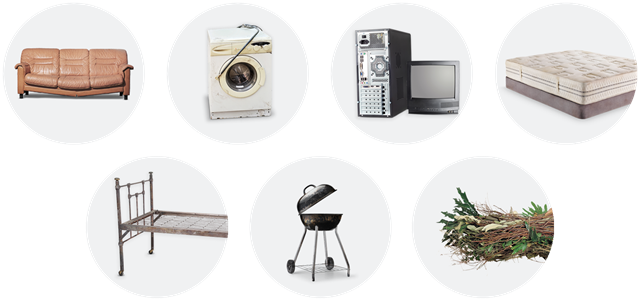
What can be collected 👍
What can’t be collected 👎
Before you start
Pick-up schedule
Download our bulky waste pick-up schedule to find out which day of the week we pick up in your area. Bookings made by 2pm the day before your scheduled collection day will be picked up that week.
How to book
Put your items out the night before your scheduled collection
-
Don’t put your items out earlier than this as passers-by may add to the pile. Or the entire pile may be considered illegal dumping and rejected by our collection crew, potentially resulting in a fine. Check your confirmation email for your collection date.
-
Separate your items into 3 groups listed below. Place items in the same group together, and slightly away from items in other groups. For example, furniture and bulky household items should be in a separate pile, away from metals, whitegoods and electronics.
We partner with specialised recyclers who collect these items separately because each item requires a different recycling process. Separating the items means we can recycle more and send less to landfill.
If you have a building manager or contact responsible for managing your building’s booking, follow their instructions on where to leave your items.
-
Make sure your items are placed in the correct location for pick-up. Items must be placed in an accessible location next to your property that is easy to see from our trucks. Don’t place items behind trees or vehicles that could prevent our drivers from seeing them. We won’t collect or move items from inside your property, including your driveway, porch or front yard. Some properties have multiple access points. Check your confirmation email for the pick-up location or follow instructions from your building manager or booking contact. If your items are placed in the wrong spot, including private property, they won’t be collected.
-
Size matters: if you live in a house, keep your pick-up to one cubic metre per booking, or about a box trailer load. For apartment buildings, the limit per booking is 4 cubic metres.
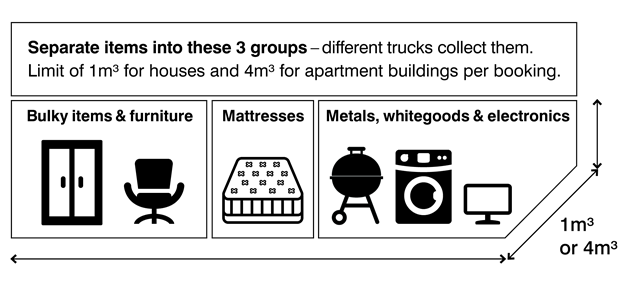
After you finish
If something doesn't go to plan 🙁
Other information
Tips to manage booked collections in apartment buildings
Our system allows one booking for each item group per apartment building each week. Most apartment buildings arrange for the building manager or a key contact to book one pick-up on behalf of all residents.
Where does it all go?
We recycle what we can and safely dispose of the rest.
- Mattresses are sent to our contractor, who recycles up to 75% of mattress parts. Steel springs are recycled into products like metal roofing. Foam is turned into carpet underlay. Timber can become weed matting and mulch. Textiles are used in products like acoustic panelling.
- Furniture and bulky household items are collected and taken to a transfer station where metals and plastics are removed for recycling. Furniture that can't be recycled is downcycled into fuel for cement kilns. If your items are still in good, working condition, try to find a new home for them first.
- Whitegoods are usually made of valuable metals and plastics. Our processors first remove any hazardous chemicals or heavy metals. Whitegoods are then crushed and shredded for recycling. Recovered materials like copper, steel and plastics can be turned into new metal and plastic products.
- Metals like aluminium or steel from common appliances are 100% recyclable and can be recycled over and over again. Metals are melted down to be reused in new production.
- Electronics are sorted and broken down into parts for recycling, such as metals, plastics, circuit boards, glass and more. Some electronics are repaired or refurbished, with data wiping, before being resold.
